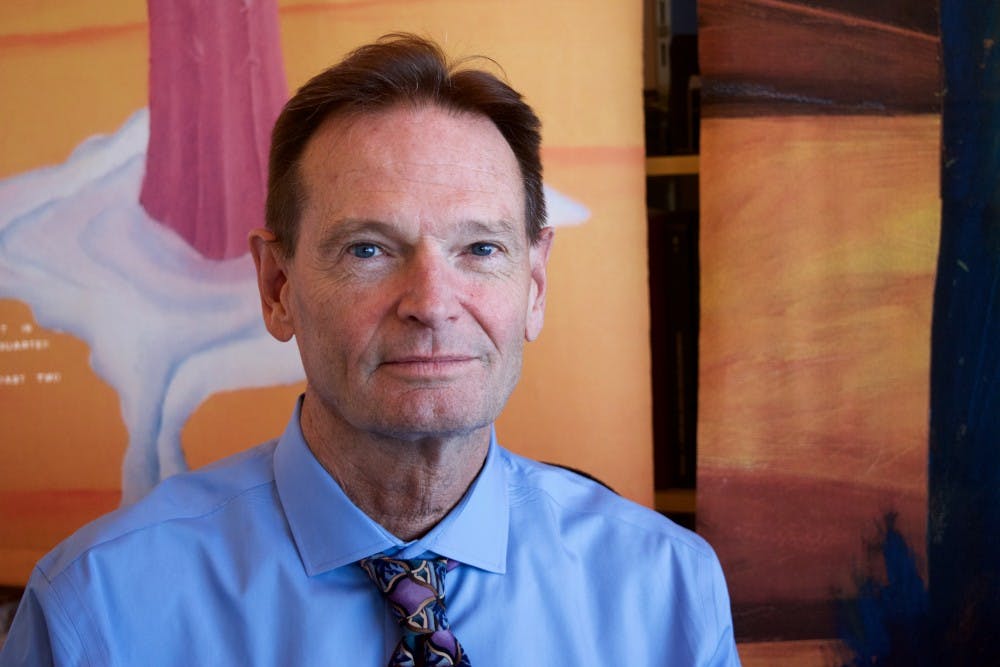A pair of seasoned ASU bioscientists have been awarded for their considerable contributions to the field.
ASU Professors George Poste and Stephen Johnston received awards from the Arizona BioIndustry Association on Sept. 21.
Poste is chief scientist at ASU’s Complex Adaptive Systems Initiative and regents’ professor and Del E. Webb Chair in Health Innovation. He will be receiving the 2016 AZBio Pioneer Award for Lifetime Achievement.
Johnston is a professor in the School of Life Sciences and director of the Biological Design graduate program at The Biodesign Institute. He will be receiving the award for 2016 Arizona Bioscience Researcher of the Year.
Over his lifetime, Poste has published over 350 research papers, worked for numerous major companies in the pharmaceutical and biotech industry and was honored by Queen Elizabeth II in 1999.
H
owever, Poste attributes much of his success to the smaller factors in life.“I think everyone’s success is individual," Poste said. "First of all, even though I’m the first in my family to go to college, I nonetheless had enormously supportive parents, and stability in the home is a vital factor."
Despite a storied career, Poste said he still values new awards.
“It doesn’t matter how much you’ve achieved before, it’s always pleasing to receive recognition of this kind,” Poste said.
Stephen Johnston's most recent work includes leading a project that is developing a universal vaccine for cancer.
“We’ve done the safety trial in dogs, and now we have the trials ready to go at about five sites: one in Europe and four in the United States," Johnston said. "But we have to raise the funds to sustain the whole efficacy trial. We will start very soon doing a therapy trial using the same vaccine."
Getting to this point in the process has taken a lot of time, but the possibilities of the vaccine are substantial, he said.
“We wanted to discover foreign things that tumors make, that normal cells don’t," he said. "Then we had to find things that tumors make repeatedly, if we were going to make something to prevent the cancer. And so, the basic idea is that we will have a vaccine with about 20 little different pieces of foreign stuff in it."
Johnston also led the development of a diagnostic system that monitors people’s health and is a pro-active approach to diagnosing diseases in their earliest stages.
"(Johnston is) extremely good at pulling that apart and understanding the critical pieces of it, and then seeing what kinds of technologies would be required in order to accomplish it," said Neal Woodbury, director of ASU's School of Molecular Sciences and a colleague of Johnston's. "There is an intuitive aspect to that that is very unique to him, where he sort of goes from A to Z while the rest of us are struggling with B, C and D."
Both scientists said University resources were instrumental in their success so far.
“When I came here I got a lot of money, and it allowed me to do things that I never would have gotten funded to do otherwise," Johnston said. "They basically let me have free reign, which nobody else would have let me do ... so that has paid off. I would think that ASU would use that as an example of where they could give this to people that have ideas, and let them run with them, as crazy as they may seem."
Reach the reporter at jpleona1@asu.edu or follow @jpleonard123 on Twitter.
Like The State Press on Facebook and follow @statepress on Twitter.





